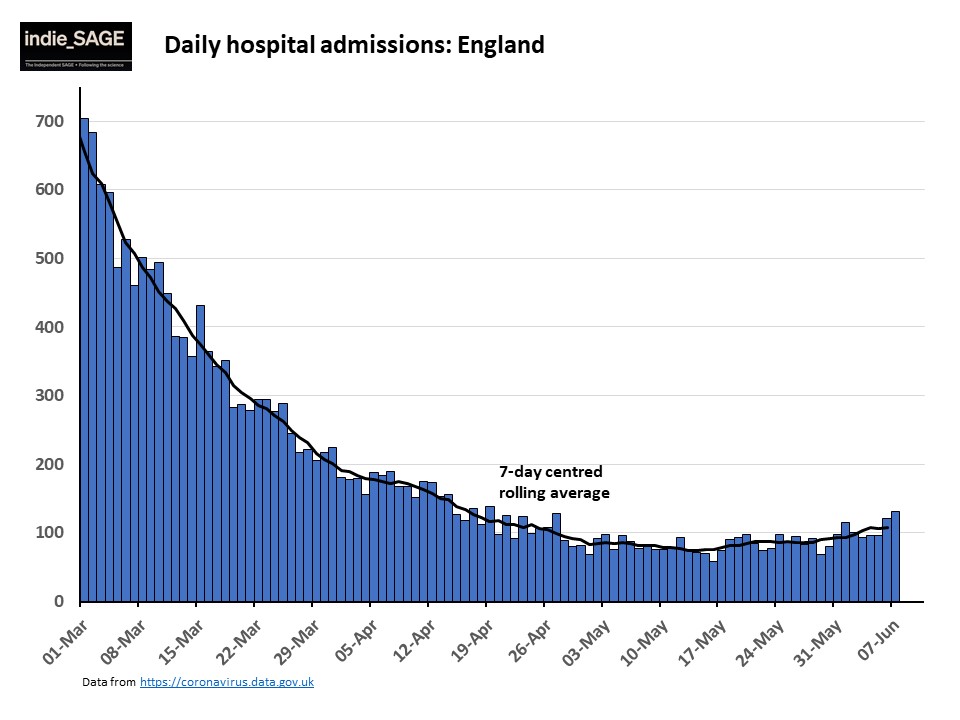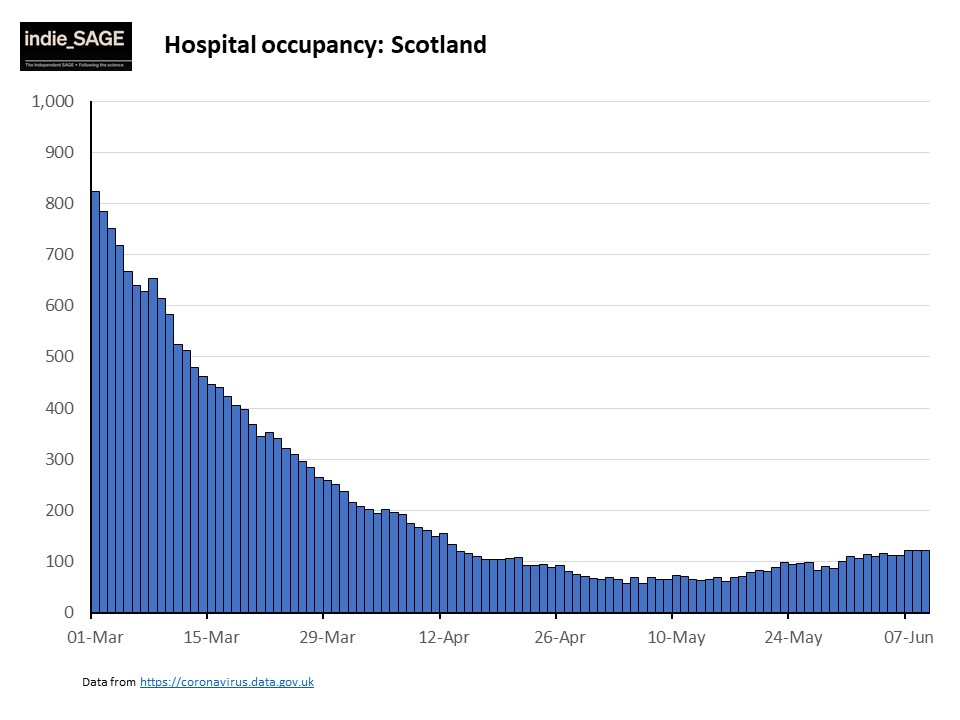A short🧵on hospitalisations.
We know cases are rising rapidly (see🧵below), but will this translate into hospital admissions and occupancy and how fast?
Tl;DR - too early to tell exactly, but the link hospital-case has not been completely broken.
1/7
We know cases are rising rapidly (see🧵below), but will this translate into hospital admissions and occupancy and how fast?
Tl;DR - too early to tell exactly, but the link hospital-case has not been completely broken.
https://twitter.com/Kit_Yates_Maths/status/1403283397401788418
1/7
Despite the rise in cases, hospital admissions have been slower to rise across England.
Part of the reason is that hospitalisations lag cases by a week or so, so we would expect them to rise later.
Part of the reason is the people being infected are less likely to need hospital.
Part of the reason is that hospitalisations lag cases by a week or so, so we would expect them to rise later.
Part of the reason is the people being infected are less likely to need hospital.

Occupancy seems to be rising even more slowly.
This might be because the people going to hospital are less severely ill and can de discharged more quickly meaning their residence time is less.
You can barely see the rise here, which seems like good news.
3/7
This might be because the people going to hospital are less severely ill and can de discharged more quickly meaning their residence time is less.
You can barely see the rise here, which seems like good news.
3/7

But lets look at Scotland who are a bit further ahead in their case rises. Their hospital admissions bottomed out in early May and have risen significantly since. Still slower than in September (good news), but more worrying than the English picture appears.
4/7
4/7

Again with Scottish hospital occupancy, although the rises are less pronounced, than in admissions there is a much clearer rise than in English occupancy, suggesting we can't expect occupancy to remain at low levels. People aren't being discharged as fast as they are admitted.
5/
5/

The same is true in the North West, who are furthest in their third wave in England.
Both hospital admissions and occupancy rising at a faster rate now.
This is what we can expect in the rest of England as cases continue to rise in all regions.
6/7

Both hospital admissions and occupancy rising at a faster rate now.
This is what we can expect in the rest of England as cases continue to rise in all regions.
6/7


So it's good news that cases rises don't quite mean the same thing that they did last September in terms of hospitalisations.
However, if we let cases get out of control we could still see a substantial wave of hospitalisations in this upcoming third wave.
\ENDS
However, if we let cases get out of control we could still see a substantial wave of hospitalisations in this upcoming third wave.
\ENDS
• • •
Missing some Tweet in this thread? You can try to
force a refresh




